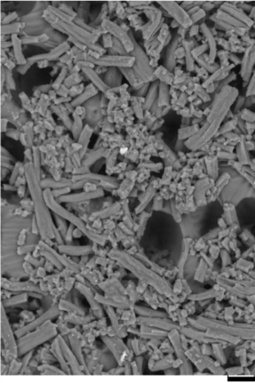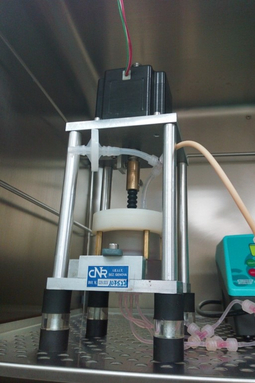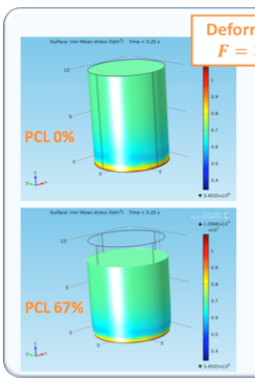Bioengineering and Tissue Engineering
The laboratory is equipped for biomaterial design, software simulation of their biomechanical characteristics, chemical characterization of the materials and their functionalizations, biological validation. Furthermore, the laboratory is equipped with various platforms for fluid dynamic stimulation (through the use of peristaltic pumps and syringe pump), electromagnetic stimuli (through the use of solenoids) and mechanical stresses (through physical and hydrodynamic compressions).

Design and development of 3D functional biomaterials
The team is involved in the development of functionalized biomaterials to guide the regeneration of the target tissue; the functionalizations can be topographic (through surface treatments), biochemical (through the insertion of bioactive components into the materials), or biomechanical (through the use of graphene or other components capable of varying the stiffness of the bulk material)
Design and development of bioreactors for resembling physiological stimuli in vitro
Descrizione attività: this research activity is both in silico and experimental; it involves the realization of portable devices (bioreactors) for the in vitro emulation of portions of the human body (physiological niches), to study healthy or pathological phenomena, such as the repair of a fracture under the effect of a biomechanical stimulus or the alteration of the cardiac cells activity due to the effect of an electromagnetic stimulus.


Biomechanical and fluidodynamic modeling and simulation
Alongside the experimental activity related to the development of biomaterials and bioreactors, there is also a computational simulation activity using software such as Comsol Multiphysics. In particular, we are interested both in (i) the simulation of the mechanical properties of biomaterials under compressive stimuli that simulate physiological conditions, and (ii) in the flow simulations (velocity and shear stress profiles) that feed the artificial tissues.
